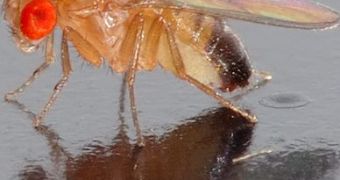Summer is that time of the year when most people get self-weight-consciously, so they start different diets hoping to have fast and amazing results. The problem is that sometimes diets not only don't make you lose weight but can also make you fatter than before. So after a restrictive and useless regime, all they can do is be jealous of those who can eat anything without ever gaining a pound.
In a recent study published in the July issue of Genetics, researchers say that diet failure has a biological cause. They understood the mechanism behind successful diets by testing fruit flies. The secret is that diet alone is not the main cause of weight loss, but rather the interaction between genes and diet is. This suggests that in the future, diets should be personalized depending on a person's genes.
Scientists analyzed 146 different genetic lines of fruit flies, being given four different diets: low calorie, nutritionally balanced, high sugar, and high fat. A variety of metabolic traits were measured in each group, body weight included. Research concluded that flies in some genetic lines were very sensitive to the received diet and this changed their weight, while flies of other genetic line were unaffected.
Researchers managed to determine how much of the variation in the metabolic traits was determined by genes alone, by diet alone or by the interaction between the two. Diet alone had a very small contribution to the weight variation while genes and their interaction with diet had more significant results. This means that some people will obtain results by changing their diet and others will not, relates e! Science News.
Lead investigator of this work, researcher Laura K. Reed, Ph.D, from the Department of Genetics at North Carolina State University says: “There is no one-size-fits all solution to the diseases of obesity and type-2 diabetes. Each person has a unique set of genetic and environmental factors contributing to his or her metabolic health, and as a society, we should stop looking for a panacea and start accepting that this is a complex problem that may have a different solution for each individual.”

 14 DAY TRIAL //
14 DAY TRIAL //